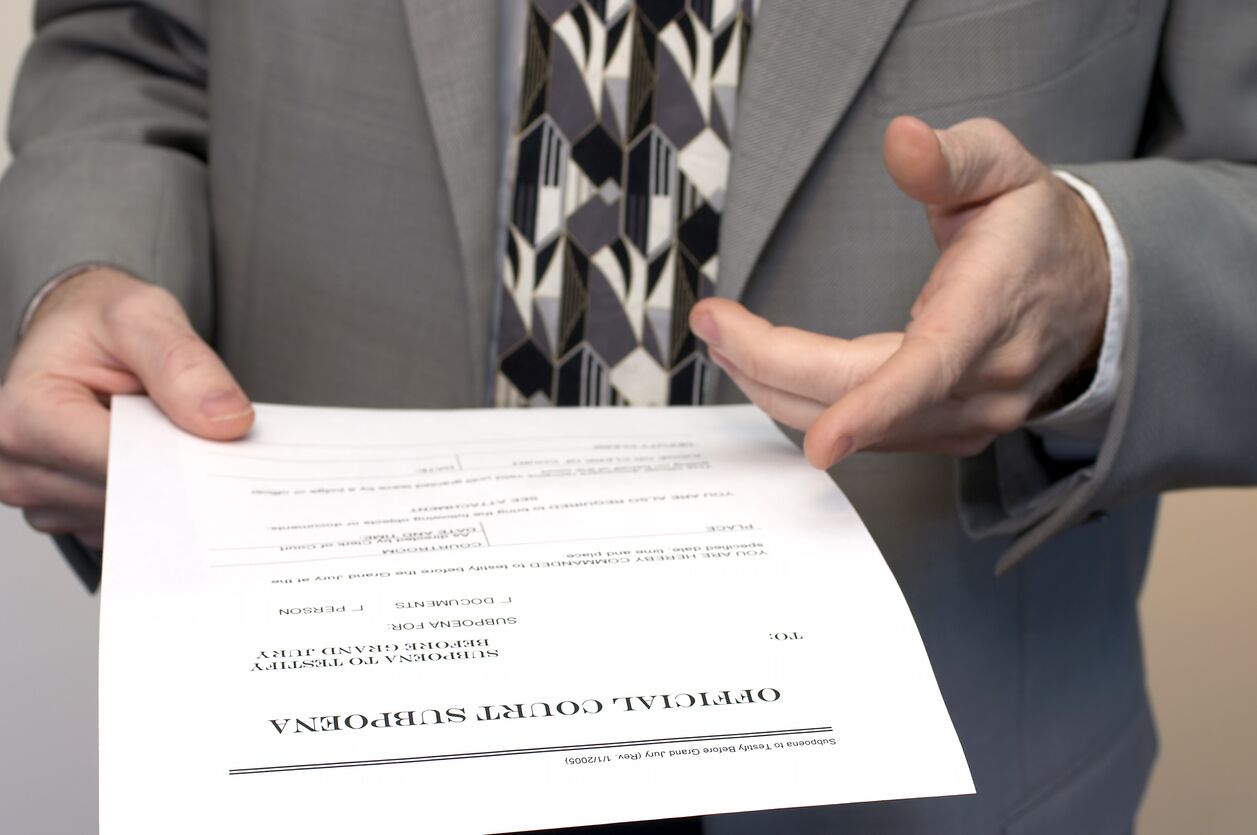The term, “being served,” means that a person has received legal papers, a lawsuit, or a subpoena, detailing a civil case in which that person served must appear. It is required by law that the plaintiff gives the defendant a legal notice before bringing them to court. But why does a person get served and how do you know if you are being served? Read on to learn more about what does it mean to get served in Texas.
How Do People Get Served In Texas
In Texas, a person gets served with a subpoena or lawsuit when they are being called to go to a civil court case against them. The following are some of the reasons why a person may get served:
- A Damage or Debt Suit
- A Child Support Suit
- For A Witness With Important Information Regarding A Court Case
If you are served with a subpoena, it means that you are required by law to appear in court on a certain date. In Texas, you must be served formally with a legal document or lawsuit.
How To Know You Are Being Served
There are a few steps that must be taken to serve a person with legal documentation. The most common and appropriate way of being served is by hand delivery through a process server. A process server can be any of the following in Texas:
- A Person Authorized By the State Of Texas To Deliver Lawsuits And Legal Documents
- A Constable Or Officer
- A Sheriff
A process server will ask you if you have the name the legal documents state to verify it is you. If you are the said defendant, they will then hand you the documents. As they hand you the papers, they should say that you are being served or that you have a lawsuit. Once the process server has delivered the documents, they will fill out a Return of Citation. This is an official form stating that they have officially served you with the documents.
However, if a process server is unable to locate you, they may use other ways to serve your legal documents. In Texas, there are a few options under TRCP 106 that allow process servers to use another method to deliver lawsuit papers. This is only allowed when they can show proof that they have tried multiple times to locate you but were unsuccessful. The following are the other options that process servers may use:
- They may leave it with a resident, aged 16 and older, who lives at your home or place of residence.
- They may attach the service papers to your door or door post.
- An authorized server may also try sending your lawsuit through certified mail or fax, especially if the civil case is from a credit card company. However, this is not an appropriate or formal means of serving legal documents.
Why Being Served By Mail Is NOT Sufficient
Many times, a person is required to be provided with a subpoena or lawsuit but ends up never receiving it. This is especially true when documents are served by certified mail or fax. Not receiving notice can be due to the fact that the process server may have sent it to the wrong address, the incorrect fax number, or even the wrong person altogether. And yet, the defendant will still be considered served without having received the proper documentation. The defendant will then have a judgment rendered against them.
If you’ve received a judgment against you resulting from failure to receive proper notice for a lawsuit, you will need a qualified, experienced attorney to help you correct the judgment and help you through the process. At Warren & Migliaccio, LLP Attorneys At Law, we work with you through each step in the process to ensure that your case and/or legal issues are handled in the best way possible in Texas. To learn more, contact us. We’re here for you.
